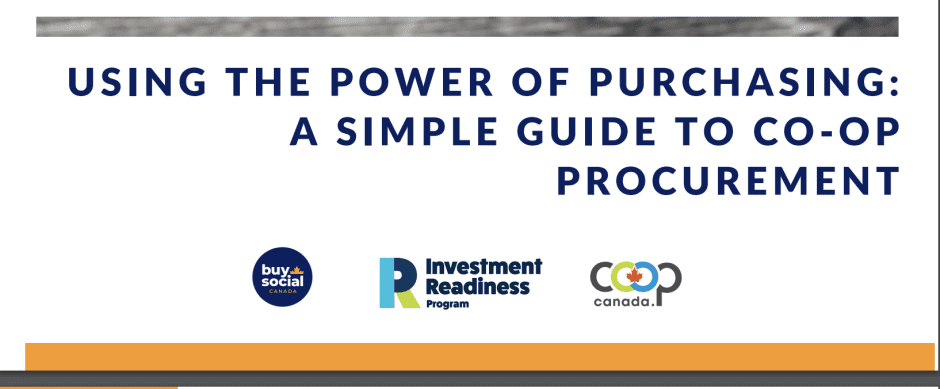Co-operatives and Mutuals Canada (CMC) has published a guide for co-ops wishing to intentionally direct their purchasing power to other co-ops.
To achieve this goal – which supports the movement’s principle 6, co-operation among co-ops – CMC advises co-ops to develop “a clear and encouraging purchasing policy”, featuring directives and guidance about their goals; identifying who can purchase what; outlining weighting criteria, and defining financial thresholds.
The policy can be simple for smaller co-ops, says CMC, and more complex as the business grows. Co-ops can also develop guidelines to help them balance priorities of quality, price and social value, using a concentric circle model to decide who to purchase from and putting co-ops in the centre as the highest priority.

If a product or service is not available from a co-op, CMC advises considering purchasing from other social suppliers like a social enterprise, diverse-owned business, local supplier, or B Corp. According to CMC, one in three Canadian adults is currently a member of a co-op. Of those who are not currently a co-op member, 61% of them say they are interested in joining one.
The guide also includes examples of co-ops and co-operative organisations that are already prioritising co-operative procurement through specific policies, such as CMC itself and the Canadian Worker Co-operative Federation.
Similarly, Just Us!, a Canadian-owned worker co-operative based in Nova Scotia, has a detailed purchasing policy which includes the following criteria and weighting for supplier evaluation: 15% for environment, community and social impact; 20% for local, co-operative, or Fairtrade businesses; and 15% for good employee rights and working environment. These categories comprise 50% of the total weighting. Suppliers are also evaluated for alignment with Just Us! values of meaningful work, justice and equality.
“Every dollar is a vote for the world you want,” general manager Joey Pittoello told CMC. In line with this approach, Just Us! sources its coffee and sugar from Fairtrade worker co-ops in South and Central America and gets health benefits and registered retirement savings plans from Co-operators, a co-operative insurer.
In terms of implementation, CMC advises finding co-operative suppliers, including by using its map and database, which lists co-ops searchable by location and product. Other steps suggested include redirecting small purchases, using direct purchases from pre-qualified co-op suppliers and issuing a Competitive Request for Proposal (RFP) with Co-operative Supplier and Community Value Weighting.
In addition to developing and implementing a procurement policy, CMC advises co-ops to also measure the outcomes as they increase their purchasing from co-ops.
The full guide is available on CMC’s website.